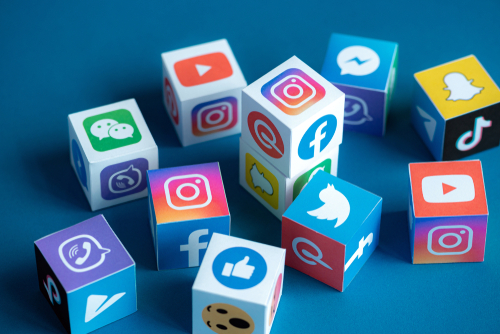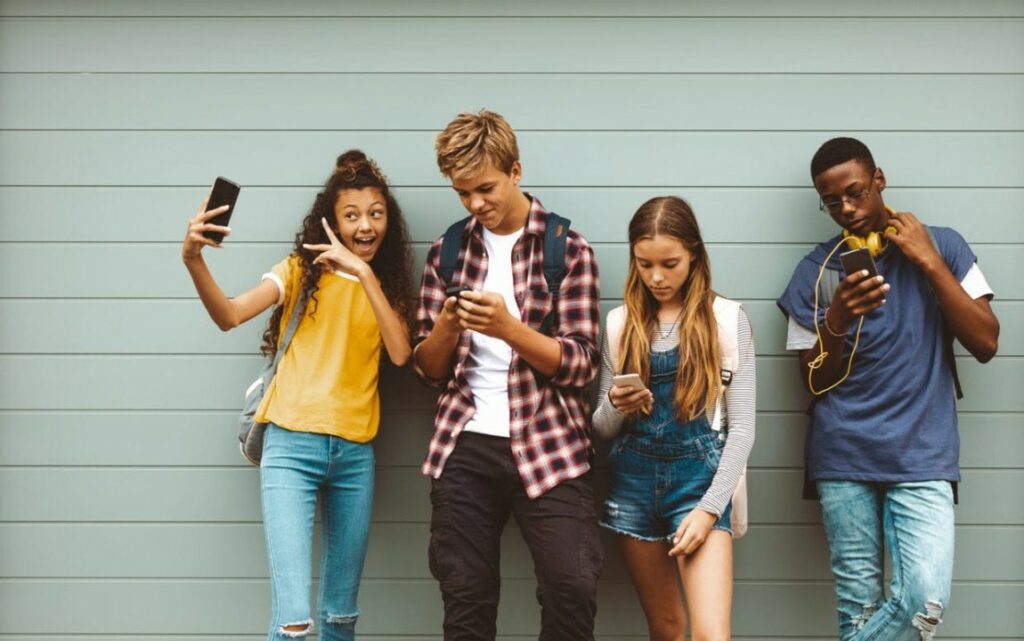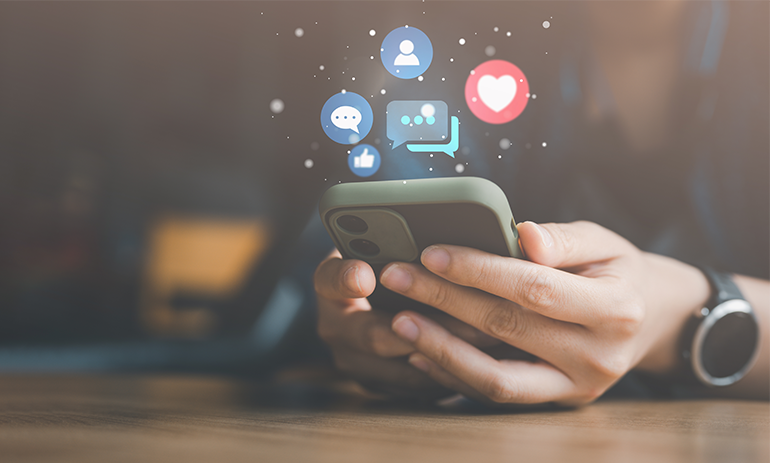Social media has become an integral part of modern life, particularly for teenagers. It has transformed the way they communicate, share information, and interact with the world. With platforms like Facebook, Instagram, Snapchat, and TikTok dominating the digital landscape, teenagers are more connected than ever before. While social media offers various benefits, such as facilitating communication and providing a platform for self-expression, it also brings along certain challenges.
The impact of social media on teenagers is a topic of growing concern. From cyberbullying and body image issues to the potential for addiction and decreased real-life social interaction, it is crucial to understand both the positive and negative implications. Here, we will explore the impact of social media on teenagers, shedding light on its influence on their mental health, relationships, self-esteem, and overall well-being.
The Growing Influence of Social Media on Teenagers

The presence of social media has significantly increased among teenagers, shaping their daily lives in profound ways. It is now rare to find a teenager who is not actively engaged on at least one social media platform. The appeal of instant communication, virtual communities, and constant sharing has captured the attention of this generation. These platforms provide an outlet for teenagers to express themselves, showcase their creativity, and connect with peers on a global scale. Social media enables them to share photos, videos, engage in discussions, and explore new interests.
However, as the prominence of social media grows, concerns arise regarding its impact on crucial aspects of teenagers’ lives, such as mental health, relationships, self-esteem, and overall well-being. Understanding the impact of social media is vital to ensure that teenagers maintain a healthy and balanced relationship with these platforms.
Positive Impact of Social Media on Teenagers

The positive impact of social media on teenagers has sparked considerable debate. While we often highlight the potential pitfalls, it’s crucial to shed light on the positive impacts that these platforms can offer when used mindfully and responsibly.
. Enhancing Connectivity and Global Awareness
Firstly, social media provides a platform for teenagers to connect with a global audience. It bridges geographical gaps, enabling them to engage with diverse cultures, ideas, and perspectives that they may not encounter in their immediate surroundings. This enhanced connectivity fosters global awareness and empathy, broadening teenagers’ worldview.
. Fostering Creativity and Self-Expression
Social media serves as a digital canvas for self-expression. Teenagers can share their passions, interests, and creative endeavors, from photography and art to music and writing. Platforms like Instagram, TikTok, and YouTube have enabled countless teenagers to share their creativity, gain feedback, and even launch careers.
. Boosting Digital Literacy and Technological Skills
The use of social media requires a certain level of technological proficiency, and regular use can enhance digital literacy. This includes understanding online etiquette, learning to navigate different platforms, and gaining skills in digital content creation. In a world where digital skills are increasingly in demand, this can be highly beneficial for future career prospects.
. Empowerment through Knowledge and Activism
Social media provides easy access to a wealth of information, facilitating learning beyond the traditional classroom. It allows teenagers to stay updated on current events, research topics of interest, and learn from experts in various fields. Additionally, social media has become a powerful tool for youth activism. Teenagers can voice their opinions, engage in social causes, and drive change, as seen in movements like Fridays for Future and Black Lives Matter.
. Building Communities of Support
For many teenagers, social media is a supportive community where they can connect with others who share their experiences, interests, or challenges. This sense of belonging can be especially beneficial for those who feel isolated in their offline lives. Whether it’s a group for mental health support, a fandom community, or a forum for hobbyists, these digital communities can offer emotional support and a sense of belonging.
While it’s essential to navigate the digital world responsibly, we cannot overlook the positive impacts of social media on teenagers. As a tool for global connectivity, a platform for creativity, a resource for learning, and a medium for activism, social media holds immense potential. With appropriate guidance and digital literacy, teenagers can leverage these platforms for personal growth, empowerment, and positive social impact.
Negative Impact of Social Media on Teenagers

As the use of social media continues to soar among teenagers, it’s crucial to explore not only its benefits but also its potential downsides. Despite its ability to connect and educate, social media can also harbor numerous negative impacts on teenagers’ lives when not used responsibly.
. Mental Health Concerns
One of the negative impact of social media on teenagers is its potential harm to their mental health. The constant pressure to maintain a perfect online persona and the fear of missing out (FOMO) can lead to anxiety, depression, and low self-esteem. Comparing oneself to others’ highlight reels can lead to feelings of inadequacy and loneliness.
. Detrimental Effects on Body Image
Social media platforms are rife with images showcasing unrealistic beauty standards. These manipulated images can cause teenagers to develop a negative body image, which can further lead to eating disorders, self-esteem issues, and other mental health concerns.
. Digital Addiction and Sleep Deprivation
The constant need for validation through likes, shares, and comments can create a risk of digital addiction. This dependence can significantly reduce physical activity, disrupt sleep patterns, and negatively impact overall well-being. Excessive screen time is also associated with health issues like obesity and vision problems.
. Cyberbullying and Online Harassment
The relative anonymity of the internet can breed cyberbullying and harassment. Teenagers can be subject to online bullying, leading to emotional distress, fear, and even suicidal thoughts. The potential permanence and wide dissemination of harmful content can make the impact of cyberbullying particularly devastating.
. Impact on Academic Performance
While social media can serve as an educational resource, it can also be a significant distraction, reducing focus and productivity. The time spent scrolling through feeds and watching videos can take away from academic pursuits, leading to decreased performance in school.
. Impaired Social Skills
While social media connects teenagers digitally, it can ironically lead to social isolation in real life. Excessive use can hinder the development of essential interpersonal skills, as face-to-face communication is replaced by digital interaction. This can lead to difficulties in forming and maintaining meaningful offline relationships.
Understanding the potential negative impact of social media on teenagers is critical in today’s digital age. It’s not about demonizing these platforms, but rather about educating teenagers to navigate them responsibly. By encouraging open conversations about online experiences, promoting digital literacy, and fostering healthy social media habits, we can mitigate these risks and create a safer digital environment for teenagers.
Strategies for a Healthy Relationship with Social Media
In the digital age, having a healthy relationship with social media is crucial for overall well-being. While these platforms provide a wealth of benefits, they can also pose challenges. Here are some strategies to foster a more mindful and balanced approach to social media use.
. Establish Boundaries
Limiting the time spent on social media can prevent digital burnout and promote healthier habits. Use app timers or set specific ‘offline’ periods during the day. Make certain times or areas in your home ‘screen-free’ zones, such as mealtimes or the bedroom.
. Quality Over Quantity
Focus on meaningful engagement rather than mindless scrolling. Interact with content that is educational, inspiring, or uplifting, and unfollow accounts that do not serve your mental well-being. Prioritize quality connections over the quantity of followers or likes.
. Digital Detox
Periodic digital detoxes can significantly improve your relationship with social media. Taking a break allows you to reconnect with the physical world, engage in offline activities, and reassess your online habits.
. Critical Consumption
Adopt a critical approach to the content you consume. Remember that social media often presents a curated, idealized version of reality. Don’t compare your life to someone else’s highlight reel.
. Privacy and Safety
Ensure that you understand privacy settings on each platform, only share information you’re comfortable with being public, and be cautious of potential scams or cyberbullying.
Implementing these strategies, you can cultivate a healthier, more mindful relationship with social media, maximizing its benefits while mitigating its potential drawbacks.
Conclusion
Social media has a significant impact on teenagers, influencing their mental health, self-identity, body image, academic performance, and social skills. While it offers numerous benefits like enhanced connectivity, self-expression, and educational resources, it can also lead to negative outcomes such as cyberbullying, digital addiction, and impaired social skills. The key to mitigating these risks lies in education, open conversations, and promoting responsible use. It’s essential to guide teenagers in cultivating a healthy relationship with these platforms, balancing online and offline interactions.
As we navigate the digital age, understanding the influence of social media on teenagers is crucial in empowering them to harness its advantages and safeguard their well-being. With mindful usage, social media can become a tool for positive personal growth and global connection.


